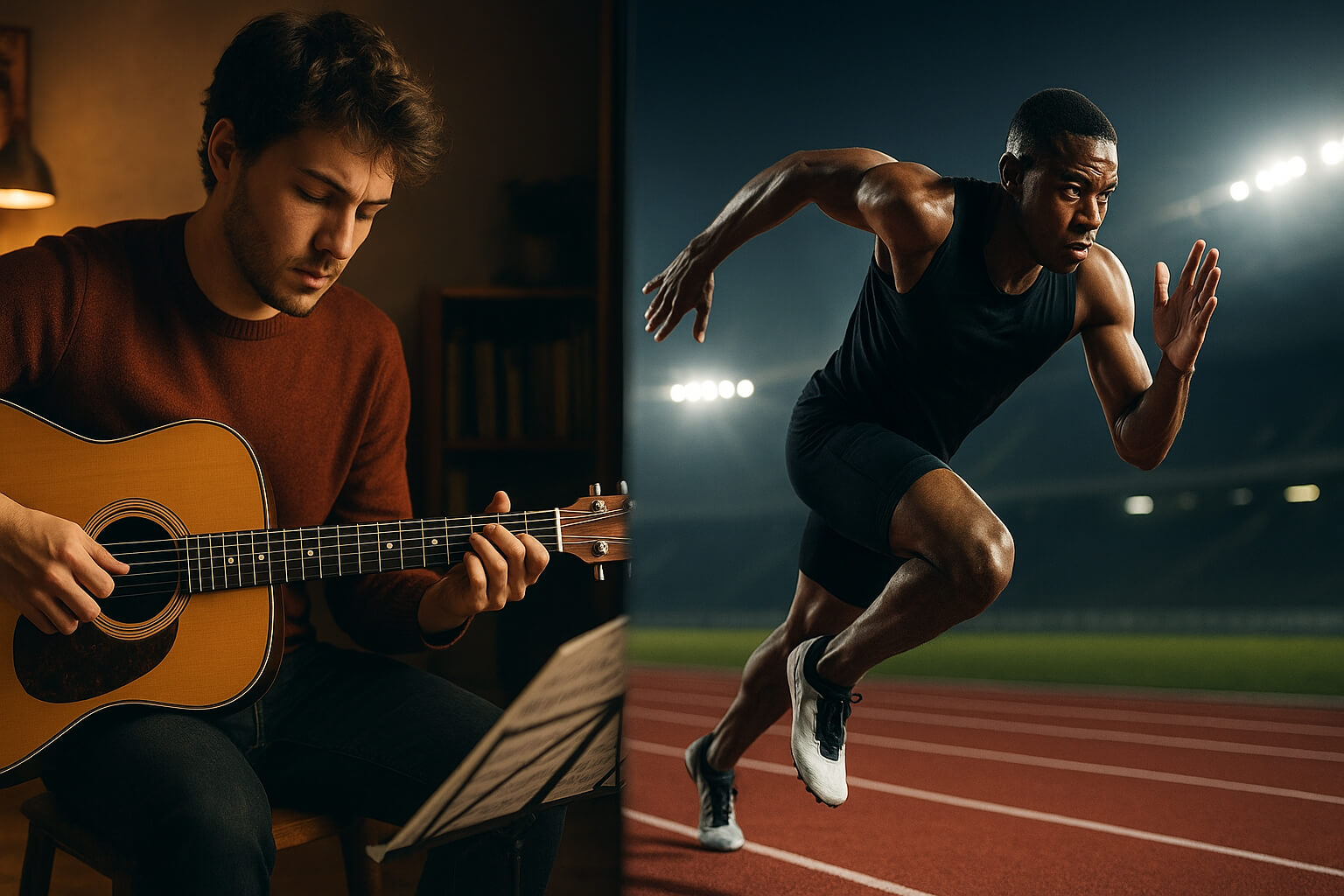Music vs. Sports: Which Hobby Builds More Discipline?

Both music and sports are powerful confidence boosters—but they build it in very different ways. Whether you're stepping on a stage or onto a field, the right hobby can teach you how to trust yourself, take risks, and grow from failure.
Let’s explore how each path shapes confidence—and which might be a better fit for you.
1. Performing Under Pressure
- One of the fastest ways to build confidence is through performance. In sports, you face real-time pressure: make the shot or miss the opportunity. In music, the stakes are emotional—express yourself clearly, or fumble under the spotlight.
- But both environments teach you to keep going after mistakes, which is key to real confidence. As discussed in Overcoming Plateaus — Strategies for Breaking Through Learning Barriers, building performance resilience means training your brain to recover quickly—whether you drop a pass or miss a chord.
2. Receiving Feedback (and Handling It)
- Sports teams often get instant coaching feedback—sometimes blunt. Musicians may receive criticism from teachers, audiences, or even themselves. Confidence grows when you learn how to hear critique without crumbling, and both hobbies train that skill.
- If you're working on solo musical growth, having a structured approach to feedback (like journaling or review cycles) can make a big difference. Practice Makes Perfect — Effective Strategies for Improving Musical Skills includes practical ways to incorporate review and reflection into your routine—without beating yourself up.
3. Creative vs. Competitive Confidence
- Sports tend to build confidence through competition—you measure yourself against others, test limits, and win (or don’t). That sharpens grit and goal setting. Music, by contrast, encourages creative confidence—you develop a personal voice, trust your instincts, and take artistic risks.
- Both are valid, but they serve different personalities. If you're someone who thrives on originality or wants to learn how to express yourself, tools like The Benefits of Learning Music Theory can give you a stronger foundation for creating your own music—and your own confidence.
4. Confidence Over Time
- Sports can build quick, high-intensity confidence boosts after a game or season. But injuries, losses, or aging out of competition can chip away at it. Music tends to build slower, steadier confidence—especially since you can continue developing and performing your entire life.
- The sustained nature of musical growth means your confidence doesn’t have to peak early—it grows with you. If you’re playing long-term, Ear Training Exercises — How to Hear Chords and Melodies can help reinforce progress that often feels invisible, keeping your self-trust strong.
5. Which Hobby Builds More Confidence?
- If you need a quick boost and love competing, sports might fuel your self-belief faster. But if you value self-expression, growth through repetition, and personal ownership of your success, music could build deeper, longer-lasting confidence.
- Both paths teach you to perform, recover, and improve—just in different emotional languages.
Final Thought
Confidence doesn’t come from never messing up. It comes from knowing you’ll show up again tomorrow—whether to rehearse your solo or run another drill. Music and sports both offer that journey. Choose the one that makes you feel alive, and confidence will follow.
